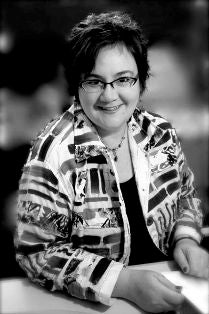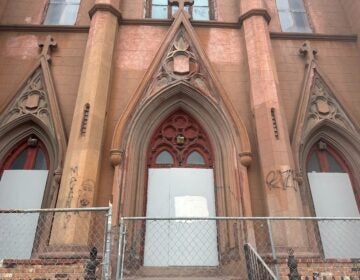Ann Hoskins-Brown

ANN HOSKINS-BROWN
Age: 46
Education: B.F.A. in Photography from Temple University’s Tyler School of Art. Some graduate work at Drexel University in Arts Administration.
Professional: Director of Development for MANNA, a Philadelphia-based non-profit that delivers medically appropriate meals to people fighting HIV/AIDS, cancer, and other life-threatening illnesses.
Volunteer/Community work: Member of the South of South Neighborhood Association’s zoning committee for about five years. Active in a zoning battle over a neighborhood cell tower – the tower was removed about six months ago, following an eight-year fight that went to the Pennsylvania Supreme Court. Former President of the Albert M. Greenfield Elementary Home and School Association.
Personal: Married to Gregory Brown. Daughter: Sarah Charlotte Brown, 11.
Philadelphia resident since 1983. Born in Louisville, Ky.
Neighborhood: Southwest Center City since 1985.
Appointer: Council chairwoman Anna Verna.
Q&A
Why is zoning reform important to you? Because it has such a huge impact on how communities develop and change. It has the ability to make a community more livable or less livable. It’s got a big impact on quality of life, and it’s got a big economic impact. City wide, it is such an important piece of how a city grows and changes and develops. And right now, it’s a really an onerous process. It’s difficult, it’s time consuming.
Why are you a good choice for this commission? Because of my involvement at the community level with zoning. Especially because I’ve been involved with zoning in a neighborhood that’s gone through a lot of changes and rapid change. I’ve really seen the impact that zoning can have on how a neighborhood is developed and shaped when it experiences growth. When I first moved into the neighborhood, it was predominantly lower income, predominantly African American, and there were a lot of houses that were abandoned and a lot of vacant lots. And it was always the neighborhood on the cusp. from the time I moved into the community, I remember people saying, “This is the next hot neighborhood.” Twenty years later, it is the next hot neighborhood. It’s really changed. I worked for the Census Bureau in 2000, and there were something like 3,000 vacant lots in our neighborhood. Now, there are only about 300 vacant lots left. In 20 years, gone from being a neighborhood on the cusp to a neighborhood that is experiencing really dramatic changes. There’s a growing income gap between the long-term residents and the residents who are moving in, new. There’s a tremendous amount of concern that between development in the neighborhood and whatever ends up happening with real estate taxes that the long-term residents not able to stay here.
What is the most pressing zoning issue Philadelphia faces? There is not really a single issue. It’s the whole issue of reform and what it will look like at the end. The process of reforming the zoning code is large. It’s going to be really complex getting through the reform process and being sensitive to all of the different kinds of issues that surround it. (Things like) being able to weigh the interests of communities and maintaining the fabric of community, versus the interests of the developers and the economic impact. Being able to come up with a process that doesn’t impede development, but also doesn’t close out the community – maintaining that balance.
What should be done to address this issue? I think reform is off to a good start. I was impressed by the schedule Janice Woodcock (Planning Commission director and ZCC chairwoman) outlined (at the ZCC’s first meeting). I think there are a lot of good examples we can learn from, in terms of what other cities have done.
I like the analysis phase (that the Commission decided to start with), looking at how zoning works or doesn’t work in the city to try to find the things that are working and build on those. I think it’s a thoughtful process that includes a lot of community feedback, and I think that is critical to making it successful.
WHYY is your source for fact-based, in-depth journalism and information. As a nonprofit organization, we rely on financial support from readers like you. Please give today.






